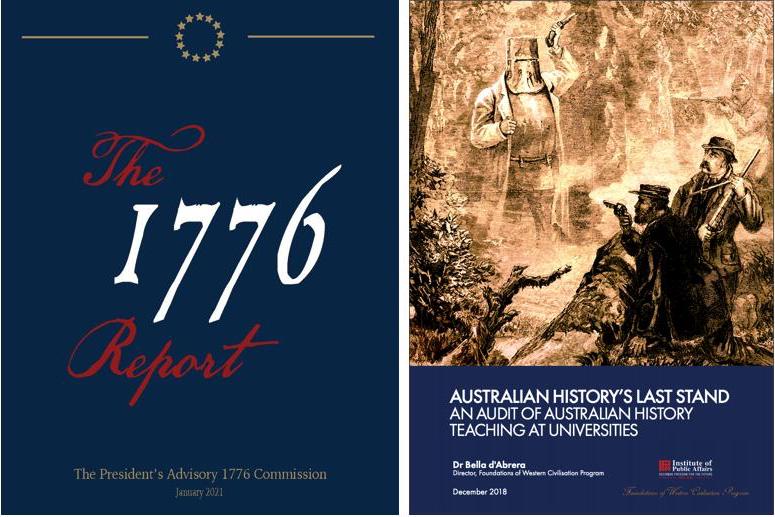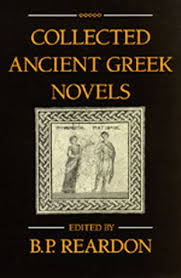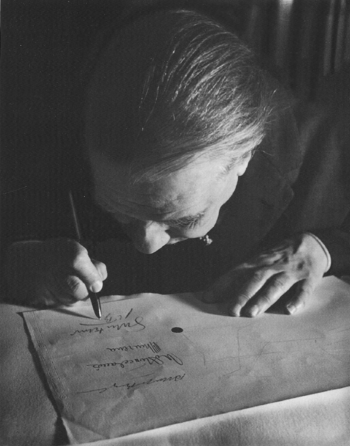 Thank Clio that Biden withdrew the report on his first day but I still feel some dismay after having read it right through last night. It is the American counterpart of Chairman Mao’s Little Red Book, a treatise of holy writ as sacred and unquestionable Pat Robertson’s Holy Bible. My initial curiosity was stirred by having read only a few days earlier on page one of Rupert Murdoch’s leading newspaper in Australia a news item about a report by right wing “think tank”, The Institute of Public Affairs, for the incumbent Liberal Party, deeply critical of the way humanities courses are being taught in Australian universities. (The report can be found here.) The 1776 Report is more of the same, in particular more of the same of an earlier IPA report focusing on the teaching of history, or to be even more exact, many pages more of the same type sweeping bromides and absence of substance, ignorance about the nature of history, outright falsehoods about how it is taught and inability to comprehend the outcomes of history teaching today.
Thank Clio that Biden withdrew the report on his first day but I still feel some dismay after having read it right through last night. It is the American counterpart of Chairman Mao’s Little Red Book, a treatise of holy writ as sacred and unquestionable Pat Robertson’s Holy Bible. My initial curiosity was stirred by having read only a few days earlier on page one of Rupert Murdoch’s leading newspaper in Australia a news item about a report by right wing “think tank”, The Institute of Public Affairs, for the incumbent Liberal Party, deeply critical of the way humanities courses are being taught in Australian universities. (The report can be found here.) The 1776 Report is more of the same, in particular more of the same of an earlier IPA report focusing on the teaching of history, or to be even more exact, many pages more of the same type sweeping bromides and absence of substance, ignorance about the nature of history, outright falsehoods about how it is taught and inability to comprehend the outcomes of history teaching today.
The 1776 Report opens by declaring that the United States was founded in “fundamental truths” that must never be abandoned. All political concerns of different sectors of society can be addressed harmoniously by a “proper understanding” of the words of the Constitution and Declaration of Independence. Whether you belong to the richest 1% or are one of the long-term unemployed in a slum area, you are a part of a same nation, one people, and are part of a system that is set up to “promote your happiness” that all “the nations of the world” will envy and want to emulate. The purpose of teaching history is to create a people united in their beliefs about themselves as Americans, who feel “inspired and ennobled” by what they learn about America’s past. The opening sentence points to the spirit of fundamentalism through which it enjoins readers to believe in their history. Despite mistakes and wrongs from time to time, the American people have always been fundamentally good and righteous:
. . . . Americans will never falter in defending the fundamental truths of human liberty proclaimed on July 4, 1776. We will—we must—always hold these truths. [Later, seven times, the documents speaks of America’s “self-evident and eternal truths” — implying their ultimately divine origin.]
. . . the principles of the American founding . . . have shaped our country. . . . [The founders] sought to build America as a shining “city on a hill”—an exemplary nation, one that protects the safety and promotes the happiness of its people, as an example to be admired and emulated by nations of the world that wish to steer their government toward greater liberty and justice. The record of our founders’ striving and the nation they built is our shared inheritance and remains a beacon, as Abraham Lincoln said, “not for one people or one time, but for all people for all time.”
. . . .
The facts of our founding are not partisan. They are a matter of history. Controversies about the meaning of the founding can begin to be resolved by looking at the facts of our nation’s founding. Properly understood, these facts address the concerns and aspirations of Americans of all social classes, income levels, races and religions, regions and walks of life. As well, these facts provide necessary—and wise—cautions against unrealistic hopes and checks against pressing partisan claims or utopian agendas too hard or too far.
. . . the American people have ever pursued freedom and justice, which are the political conditions for living well. To learn this history is to become a better person, a better citizen, and a better partner in the American experiment of self-government.
. . . America’s principlesare named at the outset to be both universal—applying to everyone—and eternal: existing for all time.
No nation, we further read, has “strived harder, or done more, to achieve” “equality, liberty, justice and government by consent” than America.
It is like reading a holy book, a promise that to “truly” understand American history is to enter a sacred experience and progress towards becoming an ideal citizen, one who is part of showing the world the epitome of universal truths, becoming part of the nation that is the envy of the world.
It does not replace religion, though. At least not directly. It lays claim, in effect, to being the one sacred place where one can find the true fulfilment of one’s religion. Religion is given meaning insofar as religion allows itself to become a prophet of the American experience. “God” and “Providence” are mentioned 26 times and Providence in the Project. “Religion” and “religious” 18 and 51 times respectively. “Faith” 29 times. “Christian” and “Christianity” 12 times. “Sacred” 7 times and “divine” 6. Two Bible verses are quoted. Even “miracles” and “miraculous” make mentions — each time to describe the creation of the United States of America.
Some years back I posted on the characteristics of fundamentalism as set out by the scholar Tamas Pataki: 10 characteristics of religious fundamentalism. Among the characteristics are
- the seeking to restore golden past;
- the belief that they are part of an elect, a chosen;
- the narcissistic self-perspective that they are part of something unique, special;
- the conviction that there is only one true and correct way of life and there is no middle ground: you are either with us or against us;
- there is a sacred founding book, a bible, (or sacred writings of the fathers,) to which literal obedience is mandatory;
- the belief that law and authority come from God (or the worlds of nature and reason that God explicitly created as means of revelation of himself);
- a spirit of nationalism.
I have adapted some points where I believe they apply to the perspective expressed in The 1776 Report but they all apply and so also, I suspect, do the others that I have not listed here.
The idea of fundamentalism is not that one thinks oneself is perfect but that one is “fundamentally good”, and because one is fundamentally good, one’s failures can be minimized, swept aside, excused. So when slavery is discussed it is pointed out very quickly that “slavery has been more the rule than the exception throughout history” and that the Western world only began to repudiate slavery “at the time of the American Revolution.” The same discussion takes a curious byway into a discussion of how the pro-slavery senator John Calhoun promoted a “new theory” of “group rights” (those of the slave-owners) that opposed the “unifying” “self-evident and eternal truths” of the Declaration of Independence. It is only when one reads further on and into the section on Racism and Identity Politics and one learns the purpose of this digression:
The Civil Rights Movement was almost immediately turned to programs that ran counter to the lofty ideals of the founders. The ideas that drove this change had been growing in America for decades, and they distorted many areas of policy in the half century that followed. Among the distortions was the abandonment of nondiscrimination and equal opportunity in favor of “group rights” not unlike those advanced by Calhoun and his followers. The justification for reversing the promise of color-blind civil rights was that past discrimination requires present effort, or affirmative action in the form of preferential treatment, to overcome long-accrued inequalities.
It takes some chutzpah to find a way to compare advocates for affirmative action to Calhoun-type racism. (For a discussion on racism today see Racism (without the hatred).
Other noble movements in the course of American history that have been part of making the United States the “most free” and the “envy of the world” have been
abolition, women’s suffrage, anti-Communism, and the Pro-Life Movement.
Did you also find yourself catching your breath for a moment when you read some of those programs on a list of “great reforms” that have “come forward [to] improve our dedication to the principles of the Declaration of Independence under the Constitution”? I don’t think I need to elaborate here. Movements that oppose these, indeed, even today’s generation born from the Civil Rights movement, are condemned as being “fundamentally” anti-American:
More problematic have been movements that reject the fundamental truths of the Declaration of Independence and seek to destroy our constitutional order. The arguments, tactics, and names of these movements have changed, and the magnitude of the challenge has varied, yet they are all united by adherence to the same falsehood—that people do not have equal worth and equal rights.
Stick that, you Black Lives Matters protesters.
The 1776 Report informs Americans that
All the good things we see around us—from the physical infrastructure, to our high standards of living, to our exceptional freedoms—are direct results of America’s unity, stability, and justice, all of which in turn rest on the bedrock of our founding principles.
Clearly, the authors are all well-to-do, live in very nice surroundings and with high standards of living. What of the others? Well, the Project does happily say that Americans who are “down on their luck” (it’s luck that is to blame) are rescued by good religious folks:
Local religious leaders have been a key buttress supporting our communities. Neighborhood and parish churches, temples, and mosques still are the strongest organized centers of help for the local poor, jobless, homeless, and families down on their luck. For generations, neighbors have assisted neighbors through church networks, helping the needy avoid the dehumanization of prolonged dependency on government welfare. Today, countless men and women actively feed and care for the poor, house and speak for immigrants and the disadvantaged, minister to jailed and released criminals, and advocate powerfully for a better society and a more peaceful world, supported by the charitable funding of Americans of all faiths.
Interesting wording. Other more “socialist-inclined” nations consider it society’s responsibility to care for those who have been victims of an economic system that has penalized them through no fault of their own. That society would through the state care for these people is considered by the authors of The 1776 Report to be an act of “dehumanization”.
I could write much more but enough is enough. The 1776 Report is an odious document that would use a particular historical narrative to justify the present power structures in the United States and condemn those who would seek serious change and justice.
History as properly taught is not a single narrative designed to promote tingly feelings of being “the most exceptional people on earth”. There is no justice in promoting “unifying, inspiring and ennobliing” feelings if they hide one from the past injustices that have produced the divisions and inequities we see all around us today. I am not suggesting that one must hate one’s nation. Remember that one of the traps of fundamentalism listed above is black and white thinking. To critically understand and explore the truth, very often too long lost from view, of the past does not have to be an act of hatred but one of determination to make things better. That sort of determination is an act of love, not hatred.
There is much more to address, especially with respect to the emphasis in both the American and Australian reports on “Liberal education” (as in the sense of Classical Liberal). Maybe over time I can post more on why this kind of education is not necessarily the way to “human understanding and liberation” that it is cracked up to be, but why an education in the humanities is indeed an essential part of a just society.



 A few weeks ago, I was dealing with a mold issue in our RV’s bathroom. (Note: If you see mushrooms growing out of a crack in the wall, it’s usually a bad sign.) Having resigned myself to working with gloves, wearing a mask, sitting uncomfortably on the floor for at least an hour, I resolved to find a long audio program on YouTube and let it play while I worked. I happened upon a presentation by Dr. Lewis Sorley, based mainly on his book,
A few weeks ago, I was dealing with a mold issue in our RV’s bathroom. (Note: If you see mushrooms growing out of a crack in the wall, it’s usually a bad sign.) Having resigned myself to working with gloves, wearing a mask, sitting uncomfortably on the floor for at least an hour, I resolved to find a long audio program on YouTube and let it play while I worked. I happened upon a presentation by Dr. Lewis Sorley, based mainly on his book, 

